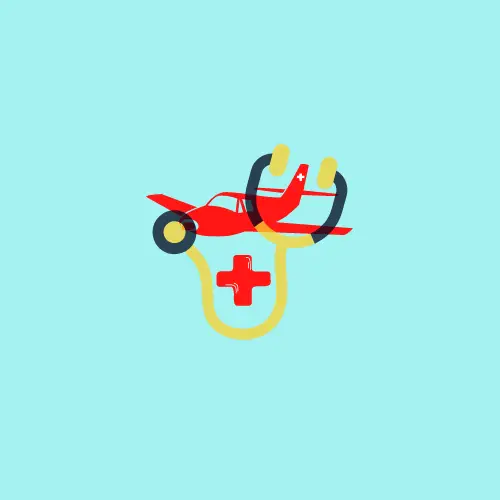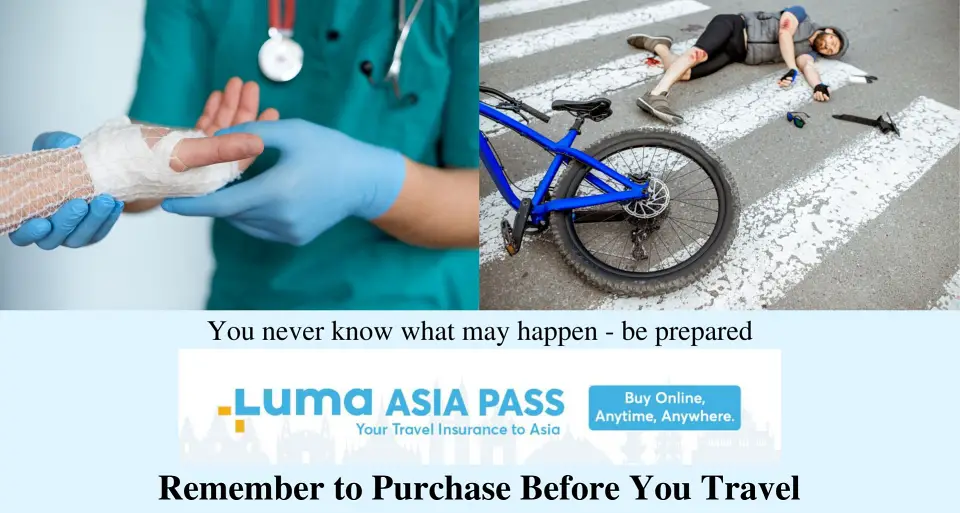Every tourist wants to know if it is safe to drink the water where they are. It is a universal concern. They may be used to drinking tap water at home and are afraid that they will simply “forget” while away and end up drinking from the tap, or at the very least brushing their teeth using tap water. So, is tap water safe to drink in Thailand?
We will break this article down as the answer is not as simple as yes or no.
Is Bangkok Tap Water Safe?
Can I drink Thailand Tap water?
Is it safe to brush my teeth with tap water in Thailand?
Can you wash your face with tap water in Thailand?
Water And Sanitation Systems Vary from Area To Area In Thailand
Is it Safe to Drink Tap Water in Other Cities in Thailand?
The Situation at Restaurants In Thailand
Ice and Filtered Water In Thailand
Is the water ok in Thailand?
Is Bangkok Tap Water Safe?
The answer can be Yes for locals but maybe for tourists. Why? It is because Thai locals have grown up with certain sanitary conditions which may or may not affect their immunity. In contrast, tourists from developed countries visiting Thailand, are accustomed to different sanitary conditions, which is why even slightly polluted water can be harmful to them.
But to summarize, the tap water condition in Bangkok is not that bad. In the past 20 years, Bangkok’s tap water has met quality guidelines set by the World Health Authority. This has been proven in a research paper by A. Kordach, Evaluation on the Quality of Bangkok Tap Water with Other Drinking Purpose Water
MWA Bangkok (Metropolitan Water Authority) produces tap water to WHO standards – and then the water enters the pipes in Bangkok. Unfortunately, the water does not arrive at your faucet the same as when it left the MWA.
“As of December 2017, Bangkok’s MWA stated that the tap water met all requirements of the WHO 2011 guidelines for drinking water quality.
However what MWA does not tell you is that according to MWA’s own tests after the water has been distributed through the system, the total solids increase by 14%, manganese by 41%, ammonia as nitrogen by 63%, and bacteria by 218%.”
Those numbers are scary! I know the study was produced 5 years ago, but I can guarantee you that very few water pipes have been replaced in that time.
Can I drink Thailand Tap Water?
Now I will be honest, when I first arrived in Thailand I used bottled water for everything. (Even brushing my teeth), better safe than sorry. But that was 26 years ago. Soon, I started using tap water to brush my teeth in most major metropolitan areas around Thailand. Bangkok, Hat Yai, Songkla, Sattahip, Rayong, Pattaya, Hua Hin, Kanchanaburi. Chiang Mai, Chiang Rai, Korat, and UdonThani, to name a few.
Now I cannot remember the last time I did not use tap water to brush my teeth when I stayed in a hotel. It has been a long time. I use tap water all the time to brush my teeth. But I do not normally drink any water from any tap in Thailand. The majority of people I know would say the same thing.
Note: I did use tap water last month in Bangkok to fill my kettle, because I did not have a bottle handy, and I am still ok, but normally I will use bottled water for tea or coffee.
We use bottled water for drinking at my house here in Thailand, we brush our teeth and cook with tap water, but everyone drinks bottled water. We have a large carboy of water that we use for most things, but we do keep 600ml bottles in the fridge for a cool drink.
Is it Safe to brush my teeth with Tap Water in Thailand?
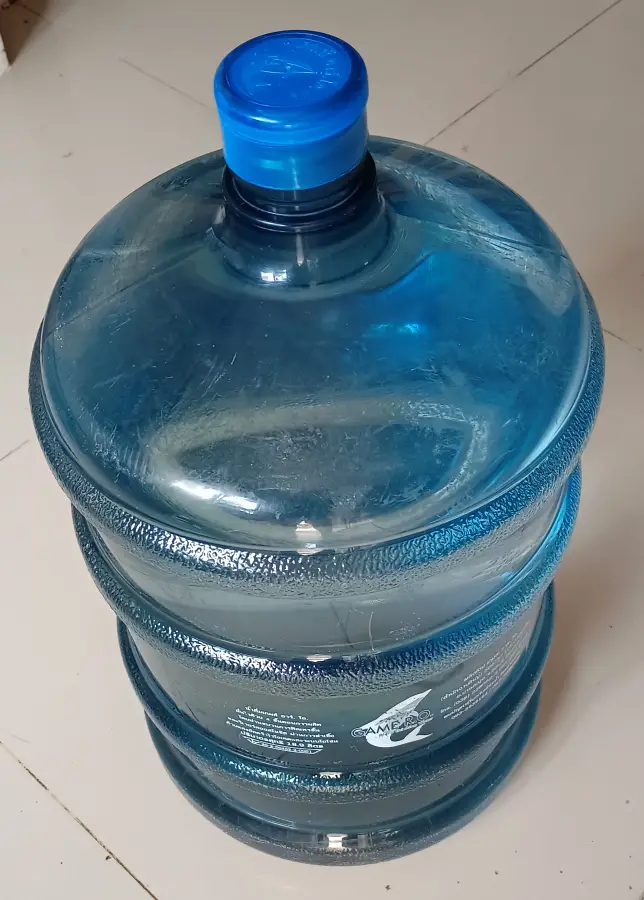
I have used tap water to brush my teeth for over 20 years here in Thailand in cities all over the country. Even in small towns, I have used tap water to brush my teeth, provided the location is on a municipal system.
Thailand does take water safety seriously and all municipalities provide safe water, but once it leaves the municipal authority, it must travel through older pipe systems and then exit a tap.
This is why the majority of people here (read anyone who can afford it) do not drink tap water. They use it for cooking and bathing, but not drinking.
Bottled water is not expensive here, you can get a 5-gallon carboy of bottled water for 60THB delivered to your house (approximately $1.72 USD).
There are more expensive companies and probably cheaper ones, as this is on the outskirts of Pattaya, Thailand. In the provinces, it is most likely less.
Everyone that I know who is on the municipal water system has these jugs (or a similar brand) delivered to their house every week. It is the simplest solution.
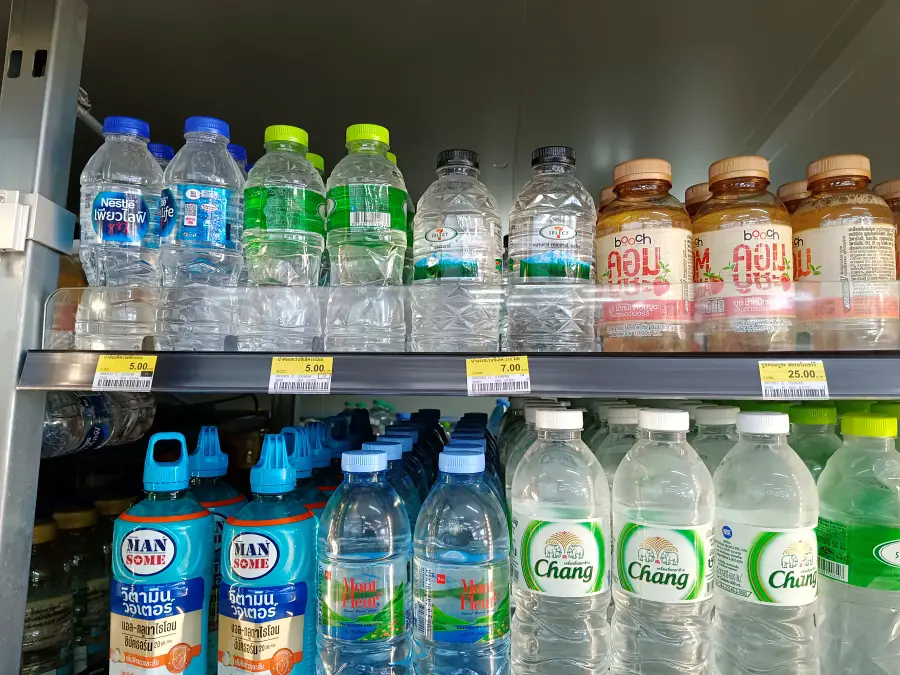
Even a cold 300 ml bottle in 7-11 will only cost you 5 to 7 THB (15 to 20 cents). That is buying an individual bottle at 7-11.
If you purchase 12 packs of water from the grocery store, you will pay less.
So bottled water is everywhere, as is ice. Ice is sold and delivered to 95% of all bars, small hotels, and street vendors, all over Thailand every day. Even a 330 ml glass bottle of soda water will cost you 10 baht at 7-11, (29 cents), or 160 THB for 24 glass bottles at the store.
Soda water has recently risen in price, a little as a year ago, it was only 8 baht in 7-11.
Can you wash your face with Tap Water in Thailand?
Absolutely, I do it every day, and as stated above I brush my teeth every day with tap water.
I do not drink it, but I do use it every day. Everyone I know here, from foreigners, and local Thai people washes and brushes their teeth with tap water. Some have filtration systems in their homes, but the majority do not.
Water And Sanitation Systems Vary from Area To Area In Thailand
It is common to see Thais drinking bottled water, and this may increase fears that tap water in metropolitan areas such as Bangkok is also unsafe. For its residents in Bangkok, the Metropolitan Waterworks Authority follows the World Health Organization’s standards for providing safe drinking water. Their website provides information about water quality in Bangkok. Although the Metropolitan Waterworks Authority is committed to providing safe, reliable tap water to the population, residents and tourists still prefer water bottles as the safest option.
Thailand, like many developing nations, has a perception that tap water is of poor quality. Foreign tourists aren’t the only ones who have this perception. It is for this reason that bottled water is sold everywhere and many Thai homes have simple water purification systems.
So the answer to the question is not that simple. You cannot quickly summarize it into a Yes or No answer for the entire country.
Is it Safe to Drink Tap Water in Other Cities in Thailand?
The answer is usually no. Once you leave Bangkok, the Provincial Waterworks Authority is responsible for providing potable tap water. It is good news that the PWA has been working since 1999 to increase the number of areas around Thailand with drinkable, safe water.
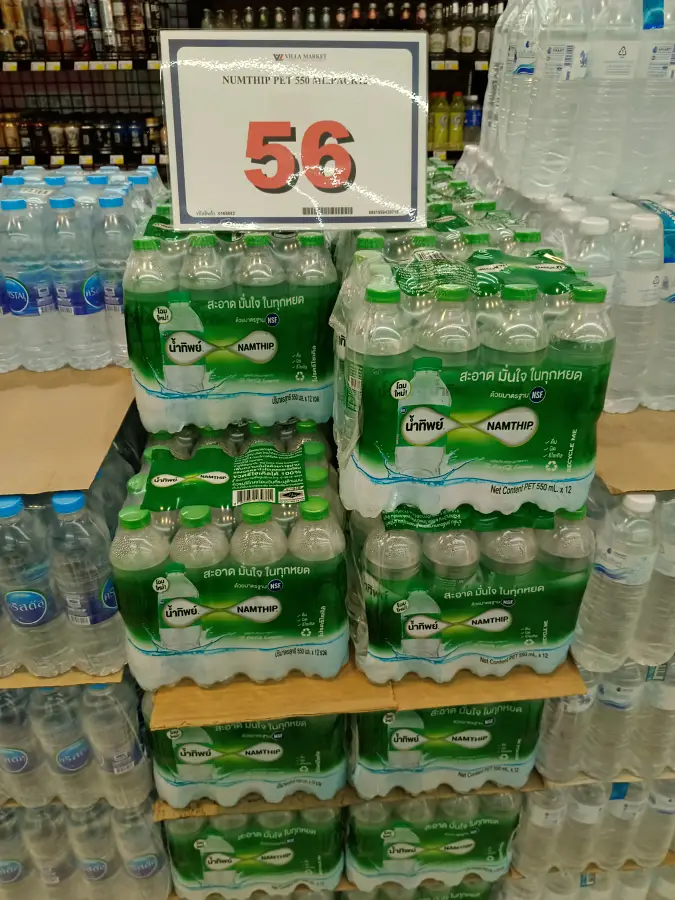
According to their website, 185 places and communities around Thailand have safe tap water. But there hasn’t been an update to this list since 2016.
Hence, there is no way to know whether the village or town you are visiting has safe tap water. So, the best advice is to avoid drinking it. No matter what the locals tell you. Alternatively, if you wish to drink it, boil it first or use a portable water filter. Though this is not advised and indeed rarely done.
Water is not expensive to purchase in Thailand, so many people just buy it.
But when we talk about other popular cities, the conditions are a little different. In Khon Kaen, some people can drink tap water, but others cannot, and here we are talking about Thai locals who clearly feel that it is not drinkable for any tourists.
Even though people have tried to get data from public sources, including WHO (World Health Organization), CDC (Center for Disease Control), and other databases, there is not enough information about Khon Kaen. Hence stating a solid answer is not possible in this case.
Now talking about popular places like Phuket and Pattaya, the conditions are even more murky. These are popular tourist destinations, welcoming millions of tourists from all around the globe. We all know that the most popular places are also the most crowded ones. In crowded environments, garbage accumulates on the street and hygienic conditions are unavoidable. Many foreign tourists have shared their personal experiences on blogs and also forums to describe their journey.
We cannot deny that there are many contaminants in Phuket’s tap water, including bacteria, heavy metals, sewage, and industrial wastewater. Boiling it or treating it with chlorine are the only solutions for such contaminated water.
There is a wide variation in the quality of drinking water in Thailand across its various regions. The Water Project reports that the south of Thailand, where Phuket is located, has some of the poorest water quality in the world. As for Hat Yai, there is not enough information to say that tap water is safe.
Bad water quality is primarily caused by the following reasons in this area:
- Phuket’s drinking water comes primarily from surface water and groundwater. There is limited supervision over what the inhabitants do with their agricultural run-offs and sewage; as a result, these pollutants often find their way into the water supply.
- Water distribution pipes often have cracks. Scientist Jarurat Chaolert, of the PPWA (Provincial Waterworks Authority), told The Phuket News that due to these cracks, there is no control over plastics and dirt that can come into contact with the water once leaving the station.
On the other hand, village life is very different, but it is still not safe. In Thailand’s rainy season, most Thai village folks get their drinking water from the dark, heavy clouds. Families collect rainwater in large earthen jars, which are then filled with plastic bottles and other containers.
Thailand guzzles bottled water by gallon, according to the International Bottled Water Association (IBWA).
In 2017, the IBWA ranked Thailand in the top ten of the world’s leading countries for bottled water consumption per capita. With 57.5 Gallons per Capita, Thailand ranked 2nd and the only Asian country in the top 10. In the table, Mexico ranked first, Italy ranked third and UAE ranked 8th.
In a nutshell, you may witness that many Thais boil water for extra safety. It is mostly because of their distrust of the government. Hot drinks and liquids are also considered safe only if they are made from boiled water in Thailand’s metropolitan areas. In rural areas of Thailand, however, it is advisable to look into drinking water purification systems. You may carry chemicals to purify the water and make it safe for drinking. That is why Chlorine-based tablets are widely available in those areas. But again they have their limitations.
The situation at Restaurants in Thailand
Tourists and many locals consider Thailand’s tap water unsafe to drink. The perception holds true in some cities, but people follow this practice across the country. That is why most hotels serve drinks from a flask and offer only bottled water. It is safe to drink water provided by restaurants, but it is quite risky to drink water from a street kitchen. It is only good for Thais who are used to the sanitary conditions but not for tourists since most street kitchens use tank water.
The average hotel in Thailand will provide bottled water for their guests. Usually, 2 bottles are free, and there may be some extra bottles in the room also, but you will be expected to pay for those. I have used the (pay as you go) bottles on many occasions when necessary and then replaced them with the same water from 7-11 or another grocery store.
One thing to note here is that bottled water in 7-11 is not expensive. I know the majority of you will consider anything from 7-11 to be expensive, but bottled water is not. However, there are many different types of bottled water available, and some are indeed expensive, so be sure to check the process before you buy.
Ice and filtered water in Thailand
Ice in general is produced by commercial companies and delivered throughout Thailand every day. Every town has an ice-making facility and they provide quality products. I have not had any issues with ice since coming here 26 years ago.
There is no doubt that drinking tap water in Thailand should be minimized, if not avoided, outright, but as I have stated, you can use it for bathing and brushing your teeth. However, it is advisable to avoid drinking filtered tap water as well unless you know the establishment and its practices and procedures. Many expat homes have filtration systems in them and obviously the filtered water there is perfectly safe.
But for commercial establishments, nobody can claim to know how often their filters are cleaned or changed. That’s why most tourists don’t drink water served in a glass and prefer drinking only from an unopened bottle.
Key takeaway
Poor sanitary conditions and low-quality water can be causes of upset stomachs among tourists in Thailand. If you are traveling here, it is always a good idea to get a sealed bottle of water. Everyone I know drinks bottled water when outside of their homes, and many (like my family) drink bottled water inside their homes as well. A few people have filtration systems, and they can be trusted as long as you know the people are maintaining them.
In Bangkok and other large tourist destinations, there are a few exceptions, notably at the more prestigious hotels. It is in their best interests to ensure their guests will not suffer any adverse effects if they inadvertently drink tap water, so they often treat their water systems. However, do not assume that because you are staying in a 5-star hotel that the water is treated. If you must know, be sure to ask the hotel. But in the majority of cases, tap water is not safe to drink.
Fortunately, bottled water is widely available and relatively inexpensive. You can have a worry-free vacation this way.
